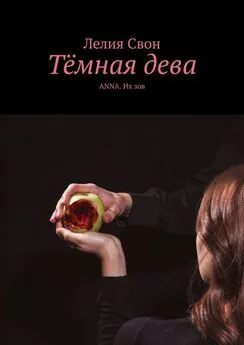Anna Godbersen - Envy
- Название:Envy
- Автор:
- Жанр:
- Издательство:HarperCollins
- Год:2009
- ISBN:нет данных
- Рейтинг:
- Избранное:Добавить в избранное
-
Отзывы:
-
Ваша оценка:
Anna Godbersen - Envy краткое содержание
Jealous whispers.
Old rivalries.
New betrayals.
Two months after Elizabeth Holland's dramatic homecoming, Manhattan eagerly awaits her return to the pinnacle of society. When Elizabeth refuses to rejoin her sister Diana's side, however, those watching New York's favorite family begin to suspect that all is not as it seems behind the stately doors of No. 17 Gramercy Park South.
Farther uptown, Henry and Penelope Schoonmaker are the city's most celebrated couple. But despite the glittering diamond ring on Penelope's finger, the newlyweds share little more than scorn for each other. And while the newspapers call Penelope's social-climbing best friend, Carolina Broad, an heiress, her fortune — and her fame — are anything but secure, especially now that one of society's darlings is slipping tales to the eager press.
In this next thrilling installment of Anna Godbersen's bestselling Luxe series, Manhattan's most envied residents appear to have everything they desire: Wealth. Beauty. Happiness. But sometimes the most practiced smiles hide the most scandalous secrets. .
Envy - читать онлайн бесплатно полную версию (весь текст целиком)
Интервал:
Закладка:
“I don’t think that lie is leaving this room, my dear.” Henry closed his eyes briefly and rubbed his forehead. “After all, what are you going to do in nine months, when there is no baby?”
Penelope moved closer to him, and her eyes drooped down sadly as though what she was about to say had already come to pass. “Wouldn’t that be so much worse?” she went on in a whisper. “If you left your wife because she couldn’t carry your first son to full term?”
Henry swallowed hard. He glanced around him, as though the walls and the furniture and even the guests were made of iron. They might as well have been. In a few seconds he realized that they all constituted a kind of prison. They looked back at him now, smiling, not knowing what their belief had changed them into. They beamed and watched the Henry Schoonmakers, thinking they were trading lovers’ secrets. Penelope must have gleaned this too, because she moved forward and into the illusion, bringing her body less than an inch from his, pressing away from the soft cushions.
“Anyway, I don’t think you have much to leave me for,” she whispered in his ear. “What do you think your little Di has been up to all this time?”
When she fell back against the armrest she giggled showily in a way that reminded him of the rest of the room, with its jovial din and witless pitch. The air around him had grown smoky and almost too thick to breathe. Everyone was talking at a level that made it impossible to hear any one conversation over another. Henry turned about in his seat, searching for Diana, but saw her nowhere. There was her chaperone — visibly drunk and dancing with his father. He saw the divan where Diana had last been, but it was empty now.
Up above the empty seat was a painting of a man, drawn to scale, in vaguely military dress, riding a horse that had reared up on its hind legs. The horse’s hooves clawed the air and his eyes were full of fear and fire; meanwhile, his rider looked proudly, calmly, at some battle down below. Henry would have liked to believe that he was like the rider, but he knew he was now playing the other role. His gaze fell to Penelope, who winked knowingly.
“Don’t you wonder where she’s run off to?” She smirked, and placed her hands demurely in her lap. “Or they, rather. So do I, especially since my brother told me some very interesting information just before we came into dinner. He told me he loves her.”
“Stop it!” Henry wanted to shout — to his wife, to everyone in the room. But he did not. He recalled all the things Grayson had said in the casino about Diana, and what a wild, desperate sort of man he was. Maybe he believed he loved her, and Diana was probably in such a state right now that she might actually believe he did too.
“Excuse me,” Henry said.
His body felt dull, and it moved too slowly through the halls of his family-in-law’s home. He used to know his way around there, for reasons he no longer liked to acknowledge. His heart beat and his feet carried him forward without any conscious control. All he knew was that he had to find Diana, which he did, eventually, but then he saw that it was too late.
He put his hand against the doorframe of that darkened room and witnessed for several horrific seconds the way Diana’s body was entangled with Grayson’s. He might have cried out, but he had no breath. It was he who had brought both of them here, to a point from which there was no returning, and it would only be foolish noise if he yelled at anyone but himself. There was nothing for him to do but stumble away with the full knowledge that all his planning and heroics were no more than half-formed thoughts dying in the mind.
Forty Two
There is in this city, behind a brownstone façade like any other, a mistress of abominations who deals in powders for immoral girls, and who gives operations when those powders fail….
— REVEREND NEEDLE HOUSE, SERMONS FOR OUR TIMES
ELIZABETH WENT LATE AT NIGHT, AS HER MOTHER had told her to do. She had memorized the address — respectable, off Washington Square, a town house like its neighbors, although the light over the high stoop burned somewhat brighter than at the buildings on either side. The rain had died down and she wore a dark, hooded cloak that covered her face, and she was careful not to be noticed on the street. It was for that reason that she paused so long in the shadows and, when she was sure there was no one peeking from a window or loitering on the corner, went quickly up the stairs. She carried with her the last of the money that Snowden had given her family, from their father’s gold rush interest, and her mother’s final words before she left the house.
“I always thought better of you,” Mrs. Holland had said, before announcing that she was going to bed. Edith had already left to chaperone Diana, and so there was no one to see Elizabeth into the bracing night. She had been told to take a hansom cab, but she could not bear for even one person to be complicit in what she was going to do.
She was sick of the nervous fatigue, but still it took her too long to pound the knocker against the door. She closed her eyes and hesitated and then finally raised her slim wrist. After that it all happened very quickly. She was ushered into a second-floor parlor, lit with antique lamps and furnished with soft fabrics and animal skins. The richly dressed woman who had let her in disappeared behind a Japanese screen that obscured an entryway. It was just like any other parlor, except finer than many, went Elizabeth’s thoughts as she waited.
There was the sound of feminine voices, very faint, from adjoining rooms. Elizabeth clutched her hands together, loosened them, and then tightened her grip. It was so strange that she should have ended up here — she who had been so admired for her dress and manner, and then later on, during nights she would have given anything to live again, so well loved. She didn’t know what to make of it, of all the turns of fate, or the room she was sitting in, with its offensive finery and false air of normalcy. It would have been difficult for her to say with certainty who she was anymore.
Once upon a time, she had been a girl who lived for her family, and its own particular idea of what was correct and beautiful. She had failed at that but found a better ideal to pursue. And now that something better had been taken from her in a blast of gunpowder. Without Will, every footstep was tentative. Even the borders of her body felt somehow hazy and indistinct, and perhaps that was a blessing, because whatever was going to happen to her next was not something she wanted to feel. She sensed a gale of sorrow coming upon her, and she shut her eyes and willed it to pass. The skin of her forehead folded at the center and she prayed that Will was in heaven, looking down on her, and that he would help her not to cry.
What would he think of this room, with its neatly framed pictures of women wearing unsmiling faces and their staid best? How many girls, she wondered, had sat in that room before her, feeling somewhat calmed by the similarity of the environs to their own homes, wanting it all to be over so they could go to balls again and be proposed to and have everyone see them as they always had — as good, pure girls who were born to marry well, in ceremonies that depicted them as blank slates. They were all hypocrites, every last one of them, she realized. The girls in their white dresses and the men who put them on pedestals but still brushed up against them when they danced. And not least her own mother, who had told Elizabeth she had “always thought better of her,” but would have been pleased to do something as venal as marry off her child for money.
The only person Elizabeth had ever known who was not a hypocrite was Will. She felt the hard stone in her throat and brought her hand up to her belly. It was stunning that she should have to suffer this way for love, and that the punishment should be so bodily, so humiliating, so absolute.
“My dear,” said a woman as she came around the screen.
The light was low, but the suddenness with which Elizabeth’s eyes opened caused her to see spots. A little moisture had collected along her bottom lids. The woman was dressed in black velvet and was full in the chest and in the face, and she smiled at Elizabeth the way a person does before they demand payment. Perhaps, Elizabeth wondered for the first time, she was not being forced to suffer. Perhaps this wasn’t another tragic twist of fate.
Suddenly it began to occur to her that what grew inside was the last thing Will had given her, and she could not possibly be ashamed of that. He had been her husband, she reminded herself.
“I have to be going,” she said as she stood. She was fatigued but not in the least ready to sleep, and she felt blearily capable of anything, just as one does after staying up all night.
“But my dear, your condition—”
Elizabeth backed toward the door. “I’m sorry,” she said. Her voice had grown loud and clear. “But that was all a mistake.”
The house was dark when she crossed the threshold, but no sooner had she removed her cloak then she heard the rattle and creak of the parlor pocket door and saw her mother come out of the darkness.
“I would have thought they’d keep you all night,” she said, and though her words were harsh there was something strained in her voice.
“No.” Elizabeth tried to catch her breath and let her eyes adjust to the lack of light. It was good to be inside; although the real chill had gone out of the weather and she had sensed a moisture in the air and the return of rain as she climbed the steps. “I couldn’t stay there.”
“What do you mean you couldn’t stay there?”
Mrs. Holland stepped into the foyer, bringing with her that smell of ash that follows all clothes that have lingered by a hearth. Elizabeth could see her face now, and she recognized in the older woman’s expression the same nervous indecision that she had been experiencing not an hour before. But for Elizabeth, the nervousness was gone, and she felt in its place a strange fortitude.
“I am going to have a child,” she answered calmly. “Will’s child.”
Her mother made a noise as though she had been hit in the stomach and all the breath had gone out of her. “You will ruin us,” she said. But she did not say it harshly, and somehow when the phrase was in the air, it sounded like not such a bad fate after all.
Elizabeth discovered that she was smiling. She kissed the little lady on either cheek and said, “Good night.” Then she turned and walked up the stairs to her bedroom. She hadn’t the faintest idea what she would do in the morning, but she knew that for the first time in many days she would sleep through the night.
Forty Three
The last will and testament of Carey Lewis Longhorn will be read today at the New Netherland Hotel, where the late Mr. Longhorn resided for the last years of his life. Though he was a bachelor, many a society lady will mourn the loss — some of them, of course, hope that today his largesse will live on.
— FROM THE SOCIETY PAGE OF THE NEW-YORK NEWS OF THE WORLD GAZETTE, FRIDAY, MARCH 2, 1900
“MISS BROAD, WHAT HAS BECOME OF YOU?”
Carolina, or Lina, or whoever she was now that all of her dignity had been scrubbed off her, stepped into the lobby of the New Netherland where she had once been so grand. Her coat dripped a little onto the shiny mosaic floor, and though she had planned to appear slightly less wrecked at this moment, the first familiar whiff of the perfume and coffee, and the sight of Mr. Cullen, the diminutive clerk who had so often handed her the key to her room, brought tears to her eyes, and before she could even begin to explain, she was wailing like a baby.
Читать дальшеИнтервал:
Закладка:




![Anna Jones - По истечении срока годности – забыть [СИ]](/books/1149886/anna-jones-po-istechenii-sroka-godnosti-zabyt-s.webp)





